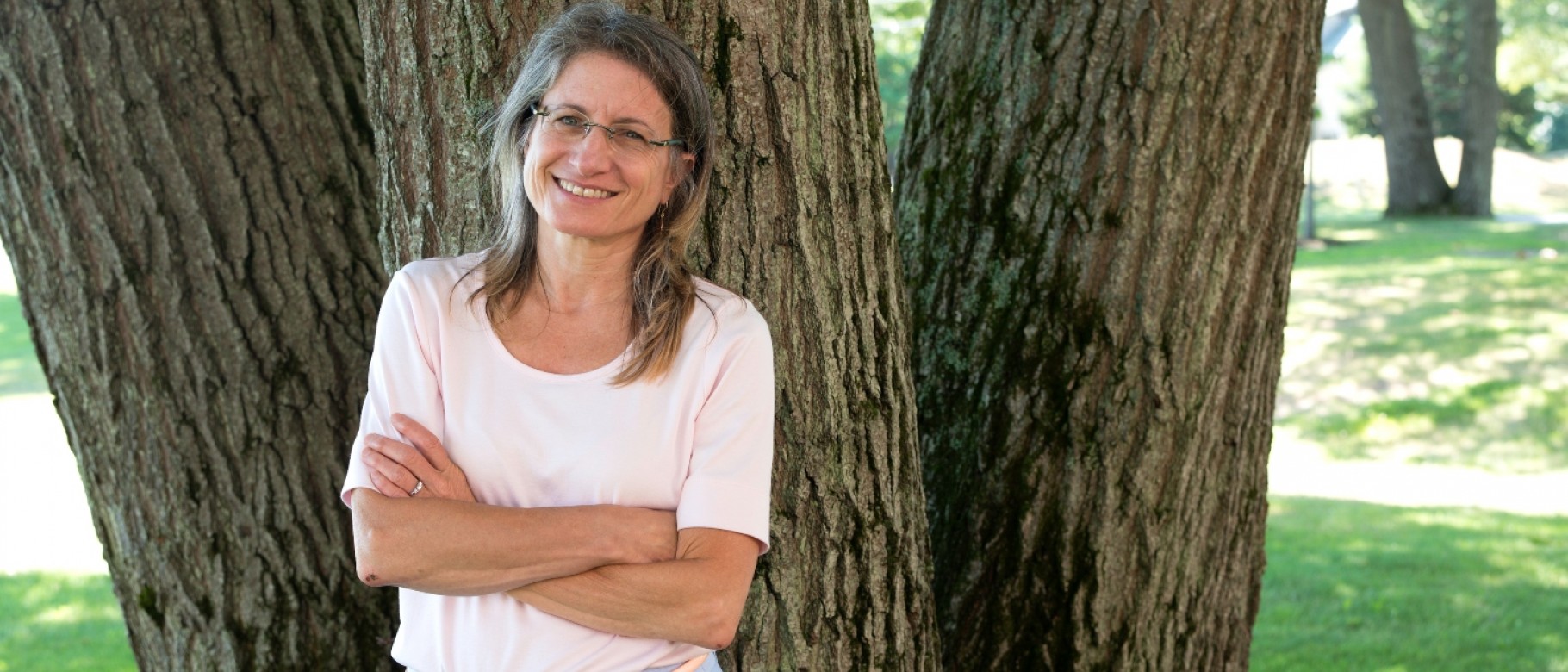UNE’s College of Osteopathic Medicine Dean Jane Carreiro interviewed by WGAN

Jane Carreiro, D.O., vice president of Health Affairs and dean of the College of Osteopathic Medicine, was the guest for the April 25 edition of the WGAN podcast “Inside Maine.” Interviewed by host Marty Grohman, Carreiro discussed several aspects of health care within the context of the ongoing COVID-19 pandemic, including changes in clinical training, the importance of health care teams, and the psychological stress felt by providers.
Carreiro began the interview by informing “Inside Maine” listeners about the broad array of health professions programs offered at the University of New England, mentioning not only the medical school but the nursing, physician assistant, occupational therapy, and physical therapy programs, as well as the colleges of pharmacy and dental medicine. She discussed the disruption that the pandemic has caused to students in all of the health care professions, noting that more advanced students have seen a curtailment of clinical experiences that is only just now beginning to abate on a regional basis.
She also emphasized that one of the most critical aspects of training at UNE is its focus on working collaboratively across the health care fields. “The whole flavor of the institution is teamwork – having the students working together and getting comfortable with what each other brings to the team,” she said. “That’s the reality of health care. Even in rural settings you have a team. You always have a team because health care is just that complicated.”
Carreiro noted that the coronavirus outbreak has made people more aware of the importance of team-based health care. “I think this COVID pandemic has really brought [the concept of health care teams] to the consciousness of the public,” she stated. “What we’re seeing now is really a spotlight on this idea of teams and that so many of the things that we do in health care are shared … and the fact that if you can find a team of practitioners that can work together and be respectful and move something forward, it’s like any other team – like a baseball team or a football team; they’re going to be much more effective. Everyone has a role, but they also know how those roles interact. And that’s something that probably, from the outside of health care, people aren’t always aware of.”
Additionally, Carreiro discussed the psychological impact of the pandemic on those in the health care field, noting that the threat of exposure is nearly constant for health care workers and causes immense worry not only about their own safety but the wellbeing of their families. “As a physician, as a nurse, a PA, you’re always in this situation, but what’s happening now is that it’s just so pervasive. It’s not one patient once in a while. It’s over and over again, so the exposure has increased significantly, and now you’re going home and you’re taking it to your family. And that’s where it gets really scary, I think, for a lot of people. It’s yourself, but it’s also your family,” she said.
She also acknowledged the toll that these realizations take on health professions students. “The psychological stress of this is something that is going to be with us for a long time,” Carreiro stated. “I see it in the students and trainees in ways that I hadn’t before.” She explained that while medical students do not usually even begin to consider the effects of exposure to sick people until they are in the advanced stages of their training, the COVID pandemic has created a situation in which students who have not even yet begun clinical work are concerned that their choice of profession could have negative health impacts on themselves and their loved ones. “Normally, students and trainees don’t even start thinking about this until they get into residency and they’re really exposed to it. But now we have first-year students who … now are already thinking about this,” she shared.
When asked what her message would be to those who are planning on going into the health professions, Carreiro said bluntly, “We need you. The health care system needs you,” adding that being a health care provider is a vocation -- not a job.”